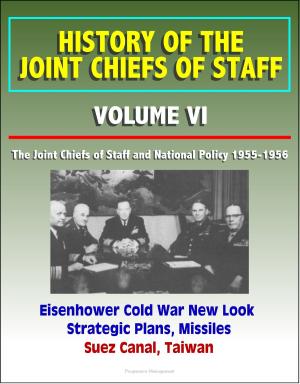Outsourcing the Air Force Mission: A Strategy for Success - Award Winning Study of the Role of Contractors and Private Companies in Critical Military Aviation Operations and Sustainment Activities
Nonfiction, History, Military, Aviation, United States| Author: | Progressive Management | ISBN: | 9781370625161 |
| Publisher: | Progressive Management | Publication: | September 3, 2016 |
| Imprint: | Smashwords Edition | Language: | English |
| Author: | Progressive Management |
| ISBN: | 9781370625161 |
| Publisher: | Progressive Management |
| Publication: | September 3, 2016 |
| Imprint: | Smashwords Edition |
| Language: | English |
This excellent report has been professionally converted for accurate flowing-text e-book format reproduction. In order to accomplish its mission, the Air Force relies on resources from all portions of the Total Force community, including active duty, Reserve, National Guard, civil service, and private-industry personnel. Over the past few decades, changes in regulatory guidance, force structure, permanent overseas basing, technology, and operations tempo have combined to create an environment in which the Air Force has become more dependent on outsourcing. Not only has the number of outsourced positions and functions increased, but also the Air Force has expanded the scope of outsourced functions to include many that significantly affect the success or failure of its critical operations.
This study accomplishes two purposes. First, it serves as a primer for readers who do not have an intimate familiarity with either outsourcing or the acquisition/manpower career fields. Second, it provides Air Force leadership and decision makers a set of recommendations designed to help them resolve or, better yet, prevent the numerous pitfalls that accompany the outsourcing process. To achieve these goals, the study provides background on the terminology, processes, and regulatory guidance used in outsourcing. It also reviews various forces that drive the Air Force toward outsourcing as a resource option and analyzes the advantages and disadvantages that may reside in any outsourcing situation.
The paper also examines numerous issues facing the Air Force and Department of Defense (DOD) in general as the outsourcing of missions continues to increase in quantity and scope. These matters range from the lack of standardized contract language to the inadequacy of the service's organizational structure that manages outsourcing operations. Clearly, the Air Force's existing structure, culture, doctrine, and policies, although functional in the past during lower levels of outsourcing activity, have not evolved sufficiently to accommodate the service's significantly increased dependence on outsourcing to complete its mission.
Furthermore, the study scrutinizes recent DOD-level efforts to address several outsourcing issues but finds that the military must accomplish much more in order to fully realize the maximum potential that outsourcing has to offer. By implementing the three sets of recommendations provided here, the service has the opportunity to develop the doctrine, policies, and processes needed to use outsourcing effectively at even greater levels than exist today. Additionally, the paper offers some critical recommendations designed to help begin the considerable effort of evolving the Air Force's culture and structure to allow full integration of outsourcing as a key and equal component of its Total Force team.
This excellent report has been professionally converted for accurate flowing-text e-book format reproduction. In order to accomplish its mission, the Air Force relies on resources from all portions of the Total Force community, including active duty, Reserve, National Guard, civil service, and private-industry personnel. Over the past few decades, changes in regulatory guidance, force structure, permanent overseas basing, technology, and operations tempo have combined to create an environment in which the Air Force has become more dependent on outsourcing. Not only has the number of outsourced positions and functions increased, but also the Air Force has expanded the scope of outsourced functions to include many that significantly affect the success or failure of its critical operations.
This study accomplishes two purposes. First, it serves as a primer for readers who do not have an intimate familiarity with either outsourcing or the acquisition/manpower career fields. Second, it provides Air Force leadership and decision makers a set of recommendations designed to help them resolve or, better yet, prevent the numerous pitfalls that accompany the outsourcing process. To achieve these goals, the study provides background on the terminology, processes, and regulatory guidance used in outsourcing. It also reviews various forces that drive the Air Force toward outsourcing as a resource option and analyzes the advantages and disadvantages that may reside in any outsourcing situation.
The paper also examines numerous issues facing the Air Force and Department of Defense (DOD) in general as the outsourcing of missions continues to increase in quantity and scope. These matters range from the lack of standardized contract language to the inadequacy of the service's organizational structure that manages outsourcing operations. Clearly, the Air Force's existing structure, culture, doctrine, and policies, although functional in the past during lower levels of outsourcing activity, have not evolved sufficiently to accommodate the service's significantly increased dependence on outsourcing to complete its mission.
Furthermore, the study scrutinizes recent DOD-level efforts to address several outsourcing issues but finds that the military must accomplish much more in order to fully realize the maximum potential that outsourcing has to offer. By implementing the three sets of recommendations provided here, the service has the opportunity to develop the doctrine, policies, and processes needed to use outsourcing effectively at even greater levels than exist today. Additionally, the paper offers some critical recommendations designed to help begin the considerable effort of evolving the Air Force's culture and structure to allow full integration of outsourcing as a key and equal component of its Total Force team.















